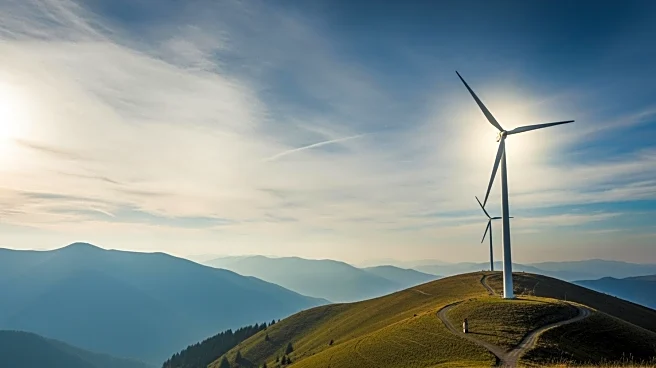What's Happening?
Sonam Wangchuk, a Ladakh-based engineer and climate innovator, has been named one of TIME magazine's '100 Most Influential Climate Leaders of 2025.' His work on 'ice stupas,' artificial glaciers that store winter water, has significantly aided Himalayan
communities facing water shortages. Despite his international acclaim, Wangchuk is currently detained under India's National Security Act following protests for Ladakh's autonomy. His wife has highlighted the irony of his detention amid global recognition.
Why It's Important?
Wangchuk's innovations in water conservation are crucial for regions facing climate-induced water scarcity. His detention under the NSA raises concerns about the suppression of environmental activism in India. The situation underscores the tension between environmental advocacy and political authority, highlighting the challenges faced by activists in regions with complex socio-political dynamics. Wangchuk's case could influence international perceptions of India's handling of dissent and environmental issues.
What's Next?
The Supreme Court of India is reviewing petitions against Wangchuk's detention, seeking responses from the central and Ladakh administrations. This legal scrutiny may impact future policies on environmental activism and regional autonomy. The outcome could set precedents for how India balances national security concerns with the rights of activists advocating for environmental and regional issues.
Beyond the Headlines
Wangchuk's story illustrates the intersection of indigenous knowledge and modern technology in addressing climate challenges. His detention highlights the broader issue of how governments manage dissent, particularly when it involves environmental and regional rights. This case may prompt discussions on the ethical treatment of activists and the role of state power in environmental governance.














